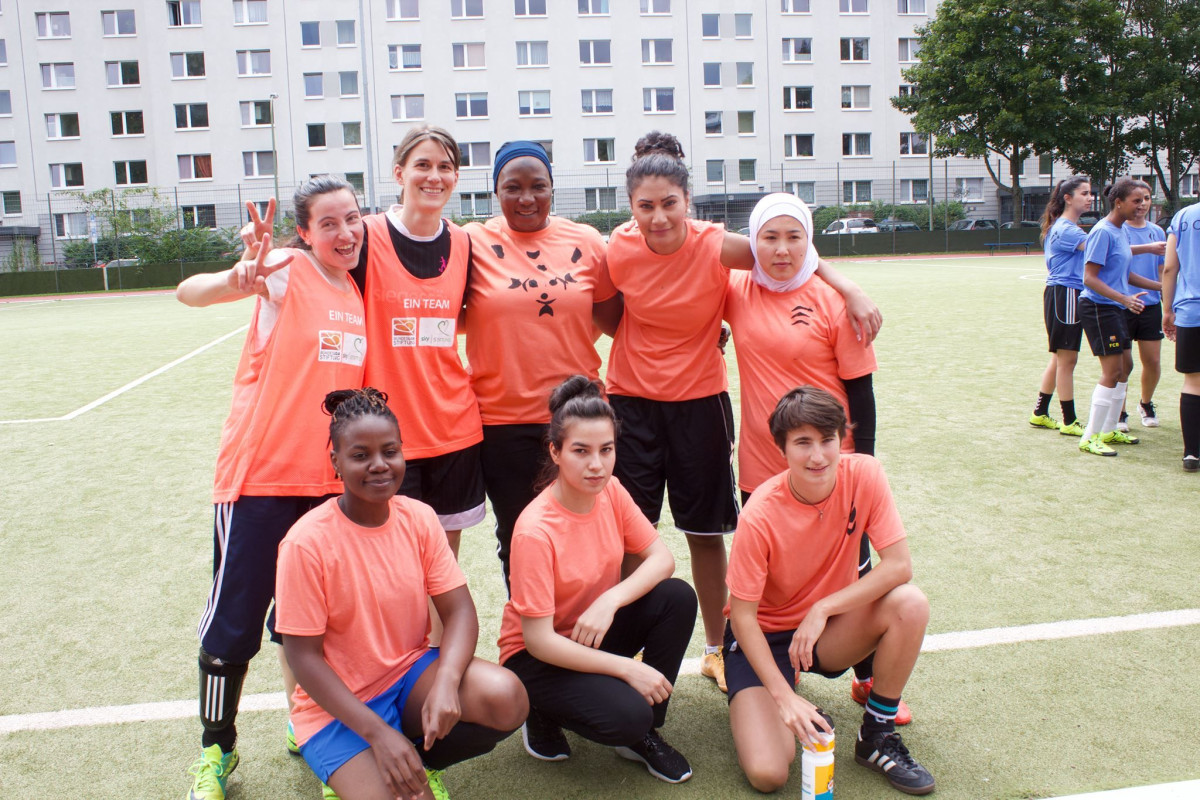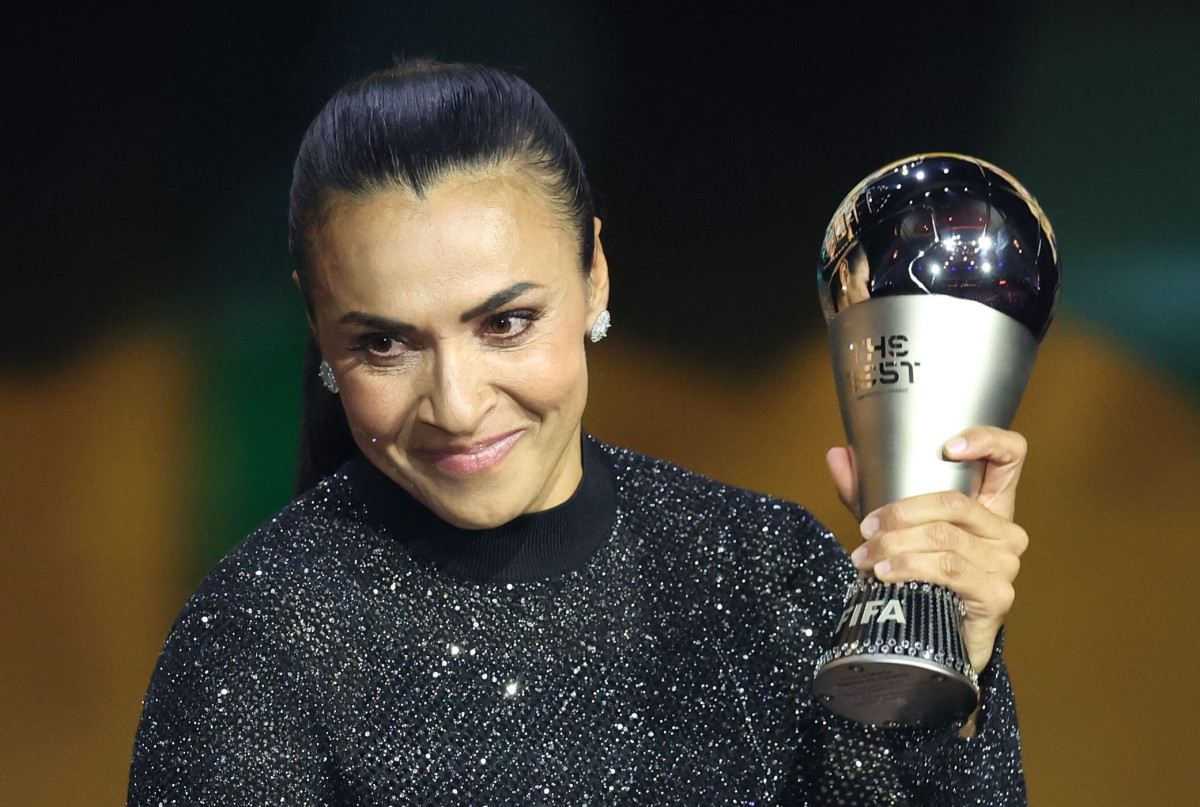The issue of sexism in football was never too far from the surface at the World Cup 2018 this summer, and it did not take long for the new season in Italy to demonstrate just how much work remains to be done for women to have an equal space in football – on and off the field. Ahead of Serie A club Lazio’s opening league game of the season against Napoli, Lazio ultras handed out flyers banning women from the first ten rows of the Curva Nord section of the Stadio Olimpico in Rome.
The Curva Nord “represents for us a sacred space” said the leaflets from the Irriducibili, “an environment with an unwritten code to be respected. We do not allow women, wives and girlfriends, so we invite them to position themselves from the 10th row back.” The Irrudicibili are known for this sort of nasty rabble-rousing - they used to be proud of the monkey noises black players faced at Lazio - but the call to ban women from so-called “sacred spaces” also reflects a mindset in which women play a part only where granted permission by men. Sadly, the case of Lazio is not an isolated example. Women have been facing sexism in the stands for a long time - it is not called out anywhere nearly enough. Incidents going back many years demonstrate the struggle for inclusion on terraces around Europe. In Russia an organised ‘Sectors without women’ campaign was launched in 2009/10 among fans of top clubs including Spartak Moscow, CSKA Moscow, Zenit St. Petersburg and others. Fans would bring banners or chant songs aimed at banning women from parts of the stadium. Zenit supporters even went as far as to decline all season ticket applications from women in 2009, issuing a rulebook for any females who dared enter certain sections of the ground. The rulebook contained notes on how to behave, how to dress and how much make-up to put on – deeply condescending and never appropriate in any space let alone a football terrace. The Irrudicibili announcement made headlines but their idea was hardy original. In 2013 a CSKA Moscow group banned women from the first 15 rows of their main fan section D7. They claimed to want to help rebuild the atmosphere. In Ukraine examples of such restrictions are also quite common, with Dynamo Kiev among the clubs to have imposed rules on female supporters at matches. Despite these examples one welcome theme during the World Cup was that Russian women were more willing to attend games, wanting to experience an open and welcoming atmosphere that is not found as often at Russian league games. “We do not attend football games in the league, as the environment at the games can be unpleasant,” one female fan told their media. Following the Lazio example, fans of another Italian club, Siracusa of Serie C, declared they too would put in place measures to move women back several rows. “The Curva Anna Siracusa is aligning itself with the statement issued by the Curva Nord Lazio and finds the criticism aimed at Lazio fans sterile and baseless,” read a leaflet publicised by the group last week. One of the few negatives of World Cup 2018 was the amount of sexism on show from fans from around the world. Fare recorded 35 incidents of sexism and misogyny around host cities and stadiums, including harassment of female fans, TV presenters and journalists. https://twitter.com/farenet/status/1011624850446848000 Perhaps the actions of misogynistic fan groups are symptomatic of the way in which the sport sees women. In 2014 Fare published a research report in which it established that only 3.7% of all senior political positions at elite clubs, national leagues and UEFA were held by women. The lack of women in decision-making roles within football is shocking; it’s not only in the stands that women are told to stay 10 rows away. But room for optimism. A positive gesture in response to the Irrudicibili and their ilk was to be found in Spain. Sevilla’s Biris Norte group responded with a message to women to occupy the front row seats for their game against Villarreal. Which they did noisily, regarding it as their rightful place. Just recently, a landmark event for women’s football took place in the form of the ground-breaking forum on women's football in South America - the first of its kind in the region involving leading women footballers – in Santiago, Chile, an event we were proud to support. The counterweight to the Lazios and others, are the developments in women's football. More money is coming in, more women are becoming global stars and more men are watching women's football. Women are gaining equality in sport whether men like it or not. And it will not have passed unnoticed that many top clubs are now forming women's teams. A regulation change by UEFA means that clubs with ambitions of playing in the Champions League must have a women's team. The time will soon come, no women's team, no entry to Europe's biggest competition.🗞️ Lazio ultras want to ban women from 'sacred' Curva Nord section of their stadium: https://t.co/0siY7mEfzb
— Fare (@farenet) August 21, 2018
 Credit: Mariana Ruiz
Credit: Mariana Ruiz





